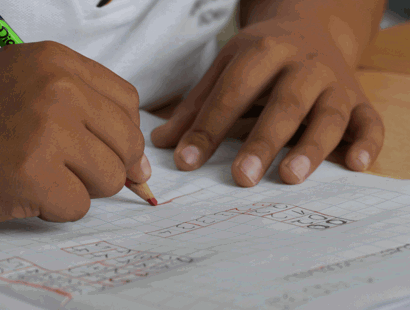
"No diagnosis necessary": your child's rights explained
According to NHS England, as of June 2025, there were 236,225 children waiting for an Autism assessment and 316,000 for an ADHD assessment in the UK. The average time on the waiting list is 17 months, with many waiting several years.
In this article, partner Eva Akins dispels the common misconception that a diagnosis is required in order for a child to access support for their needs and explains how the education law team can help.
Widespread misconceptions
A widespread misconception is that a child requires a diagnosis to be eligible for special educational needs and disability (‘SEND’) Support in school, an education health and care plan (‘EHCP’), or reasonable adjustments and protection from discrimination arising from disability under the Equality Act 2010. This is entirely untrue. Concerningly, it is often school staff tasked with supporting children with SEND that are labouring under this misconception and consequently perpetuating misinformation that serves as a barrier to a child’s needs being met.
A diagnosis can be extremely helpful, for example to access to medication for ADHD, for the child to understand themselves better, and for those supporting them to more easily identify appropriate support. However, when it comes to a legal entitlement to support, adjustments and protection in school, there is no need to wait for a diagnosis. It is the underlying needs or impairments a child or young person may have, not the label attached to them, that matters. This is especially important when a child’s access to a diagnosis is often highly dependent on attuned educators, overwhelmed Child and Adolescent Mental Health Services (‘CAMHS’), and their parents’ resources, beliefs and wherewithal.
Four scenarios
A child is disabled, and therefore entitled to reasonable adjustments and protection from discrimination arising from disability and victimisation in all education settings, if they have a mental or physical “impairment” that has a substantial and long term adverse effect on that child’s ability to carry out normal day to day activities. No diagnosis necessary.
A child has SEND and is therefore entitled to SEND Support in a state-funded education setting if they have a learning difficulty or disability which calls for special educational provision to be made for them. Special educational provision means educational or training provision that is additional to, or different from, that made generally for others of the same age in mainstream education settings. No diagnosis necessary.
A child is entitled to an Education Health and Care Needs Assessment, with a view to issue of an EHCP, if they have or may have SEND and it may be necessary for special educational provision to be made for the child in accordance with an EHCP. No diagnosis necessary.
A child is entitled to an EHCP where in light of the EHC needs assessment, it is necessary i.e. they will not get the special educational provision they require without one. No diagnosis necessary.
How can we help?
If you have any questions about the topics raised or would like to discuss any legal aspect of your child's education or associated health and social care provision, please do get in touch using the details below.
About Eva
Partner Eva Akins is an expert in cases involving special educational needs and disability (SEND), equality act claims, admissions, exclusions, complaints and school governance in the independent and maintained sector.

15.09.2025
Education law newsletter—September 2025
Welcome to the first edition of the education law newsletter, where we explore the challenges families face at the start of a new school year.
Get in touch
If you would like to speak with a member of the team you can contact our education law solicitors on +44 (0)20 3826 7528 or complete our enquiry form.





